With fish farms in BC facing mounting challenges, the future appears uncertain for foreign-owned corporations that have made substantial investments in the province’s industry. Former Fisheries Minister Joyce Murray announced the closure of fish farms near the Discovery Islands earlier this year, preceded by the decision of the BC government in consultation with First Nations to shut down fish farms in the Broughton Archipelago. The federal government is currently planning to phase out all open-net fish farms in BC waters by 2025.
This is why what Cermaq Canada, a Norwegian fish farming conglomerate owned by Mitsubishi, is doing in Clayoquot Sound is perplexing many concerned citizens. First Nations and environmentalists are demanding answers from Fisheries and Oceans Canada (DFO) for approving Cermaq Canada’s expansion of its fish farms near Tofino despite the looming 2025 deadline. We spoke to Dan Lewis, Executive Director of Clayoquot Action, to learn more about the state of fish farms in the area.
Fish Farm Closures
The federal government’s mandate to transition away from open net-pen salmon farms by 2025 aims to protect wild salmon before it’s too late. Former Minister Murray stated earlier this year that “wild salmon are in dire straits” when announcing the closure of fish farms in the Discovery Islands on the eastern side of the Island. The decision was grounded in research that found fish farms breed parasites and diseases that then transfer to the smolts, putting wild salmon populations at risk. Cermaq, along with other international fishing giants Mowi and Grieg Associates, who lost their licenses in the region, are now pursuing separate legal actions to challenge the Canadian government’s decision. However, critics argue that these corporations were warned about closures as early as 2012, following the influential Cohen Report that called for ending fish farms by 2020.
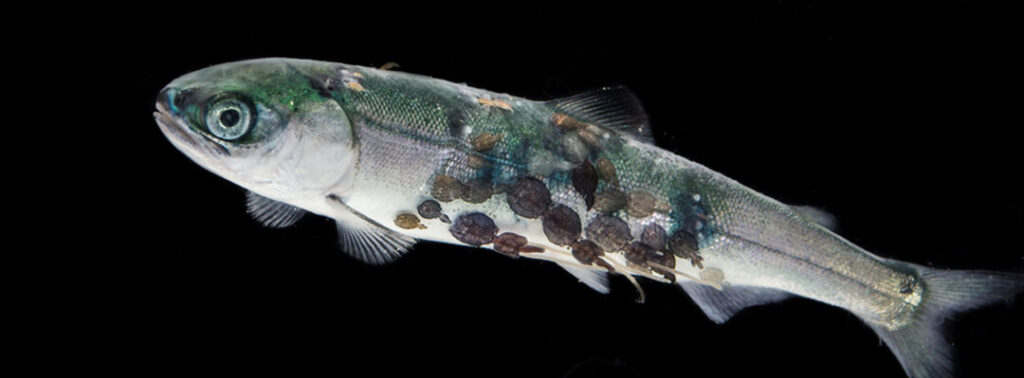
Cermaq Expansion
Amidst impending closures of BC fish farms, fish farm giant Cermaq is counter-intuitively expanding its operations in Clayoquot Sound. Home to the Hesquiaht, Ahousaht and Tla-o-qui-aht First Nations, the area has been declared a UNESCO Biosphere Reserve for its extraordinary biodiversity seen almost nowhere else in the world. It is covered in a vast, unlogged temperate rainforest, the largest on Vancouver Island, and features pristine lakes and waterways leading to its breathtaking coastline. However, despite the ecological abundance, wild salmon populations in the region are facing significant challenges to survive. Dan Lewis of Clayoquot Action, a Tofino-based conservation society, says that salmon are “on the brink of extinction” within the Biosphere Reserve.
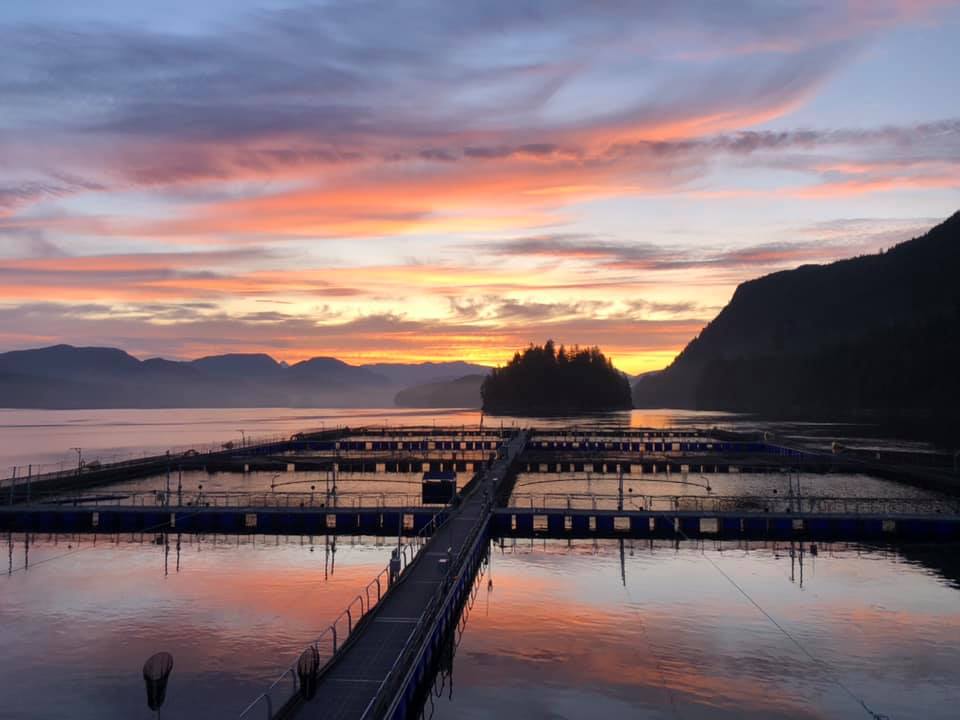
Yet this year alone, DFO’s Aquaculture Management Division has approved three applications for expansions of Cermaq’s salmon farms in the Clayoqout Sound area, and another seven are still under review. These expansions are intended to not only increase the size of the fish farms themselves but also boost overall production.
“The overwhelming majority of First Nations in BC oppose the commercial fish farm industry due to title and rights, food security concerns and the detrimental effects it has on wild salmon.”
Grand Chief Stewart Phillip, President of the Union of BC Indian Chiefs
Two farms, at Bawden Point and Millar Channel, are each expanding from 2640 to 3960 tonnes, marking a 50% increase in their biomass. A third farm at Dixon Bay has been approved to grow from 2640 to 3300 tonnes, representing a 25% increase in total production. According to Dan Lewis, this is roughly equivalent to 1.5 new fish farms. The industry, he asserts, is “desperate” and feels that “they have to expand production to remain profitable for the next year and a bit, just maximizing as much as they can.”
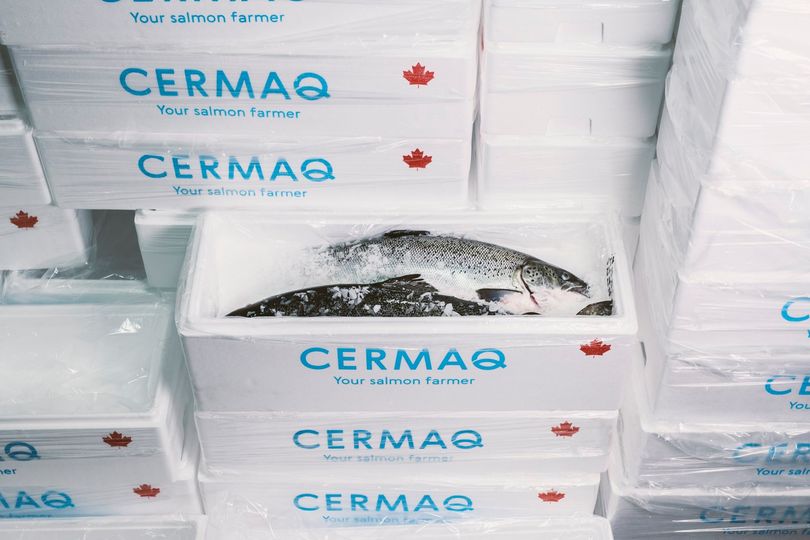
“DFO continues to prioritize the fish farm industry over First Nations title and rights and the survival of wild salmon. ”
Grand Chief Stewart Phillip, President of the Union of BC Indian Chiefs
The Skeena reached out to Fisheries and Oceans Canada for comment about the expansions, and they responded confirming the 2022 approvals in North Clayoquot have led to the increase of biomass production limits, however, “the company’s maximum allowable production in the area decreased as only four of the six farms in the area are allowed to operate at any given time.”
They also stated the 2023 approvals of licenses at Bawden Point and Millar Channel in the North Clayoquot area, and Mussel Rock in South Clayoquot, “did not include production increases, but in some cases added extra net pens to improve fish health and handling.” This included the addition of a semi-closed containment system to an existing site. “The approved amendments in no way resulted in an overall licensed biomass increase for the area,” DFO said in their statement to us.
In April, 22 environmental and First Nations groups jointly signed an open letter to the federal government calling on then-Minister Murray to stop the expansion of the Tofino fish farms. The letter expressed concern over “all-time historic lows” of salmon and criticized the fish farm approvals that went through with “no public consultation or input.”
“The overwhelming majority of First Nations in BC oppose the commercial fish farm industry due to title and rights, food security concerns and the detrimental effects it has on wild salmon,” said Grand Chief Stewart Phillip, President of the Union of BC Indian Chiefs, in a release. “DFO continues to prioritize the fish farm industry over First Nations title and rights and the survival of wild salmon.”
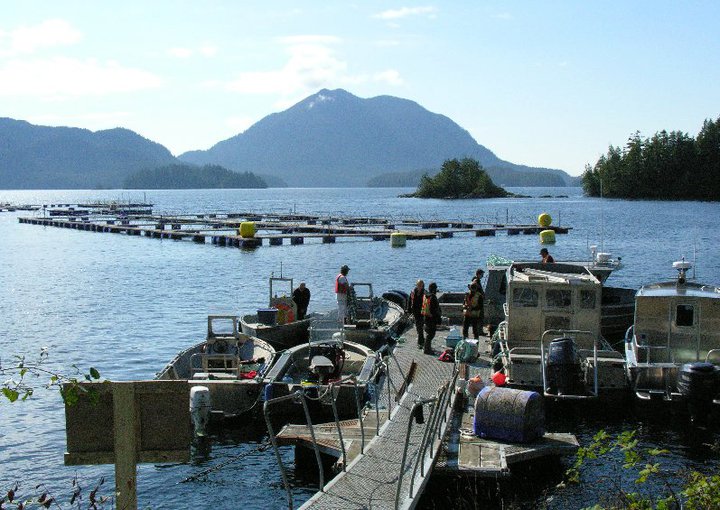
Land-Based Farming
“We do not see fully moving to land-based production as a viable solution in the remote, coastal communities where we farm.”
Brock Thomson, Innovation Director for Cermaq Canada
With 2025 just over a year away, some might expect the companies running open-net fish farms to be preparing to transition to land-based fish farms. However, the BC. Salmon Farmer’s Association, a group representing 95% of the province’s fish farm producers, has stated that the shift to land-based salmon farms would cost them nearly $2.2 billion and would not be profitable for the industry.
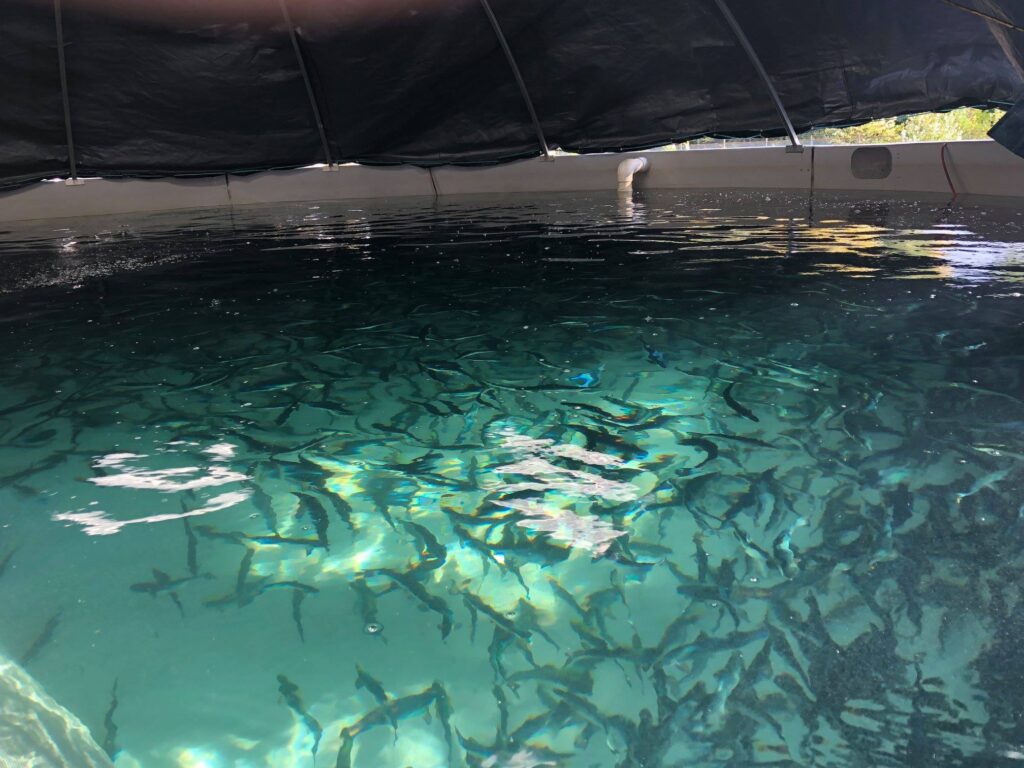
“We do not see fully moving to land-based production as a viable solution in the remote, coastal communities where we farm,” agreed Brock Thomson, Innovation Director for Cermaq Canada, back in February. Brian Kingzett, Cermaq association president, added that “to move the entire sector on land isn’t a realistic option, nor is it required to protect wild salmon.”
Lewis, Executive Director of Clayoquot Action, believes companies like Cermaq are prepared to exit the industry entirely if required to move their fish farms out of the ocean. “If the government tells them you can keep farming fish, you just have to do it on land – which is all we’re asking for – I think these companies will leave. They’ll pack up, and they’ll leave British Columbia forever,” he said.
2025 Deadline
Salmon are a keystone species of Clayoquot Sound, contributing to the health of the entire ecosystem. Orcas, bears, wolves and even the massive cedars depend on salmon for essential nutrients, not to mention the people who rely on them for their livelihood and sustenance. Experts are concerned that the dwindling numbers of salmon could have widespread effects throughout the food web.
Meanwhile, the wild pink salmon that pass through the Discovery Islands region have had a remarkable run this year. Environmentalists like Lewis argue this Fraser River salmon resurgence is the result of the closures of Discovery Island fish farms along their migration route. However, the BC. Salmon Farmers Association remains skeptical, saying pink salmon were in abundance everywhere from Alaska to Washington.
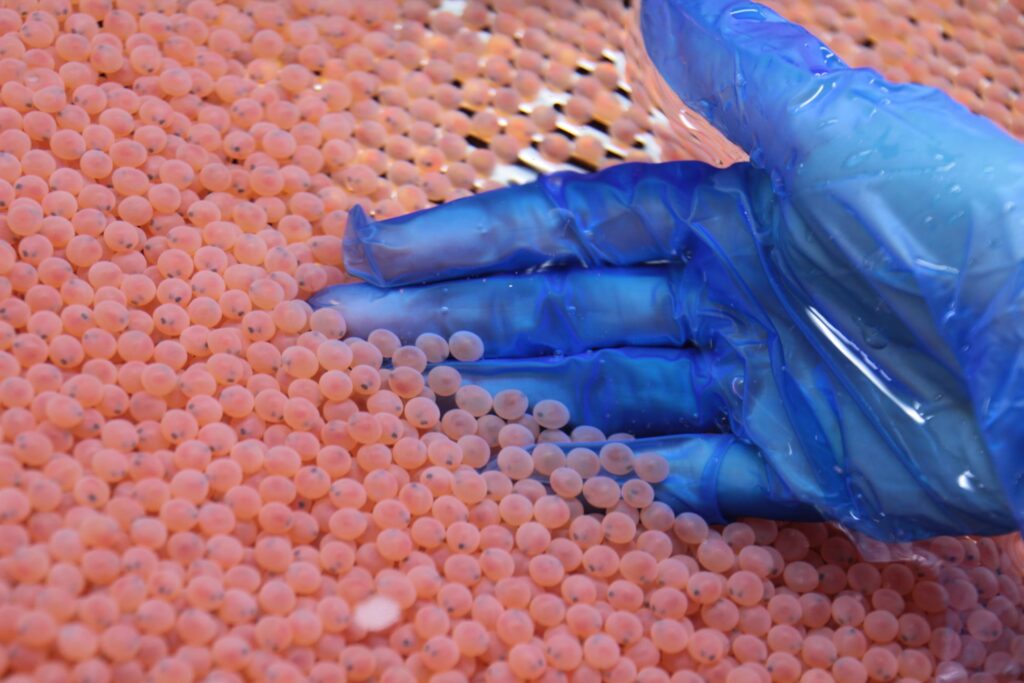
For now, Fisheries and Oceans Canada is publicly moving forward with its plan to close open-net fish farms, though some say that the federal government is still not moving quickly enough. In September, a coalition of First Nations, tourism stakeholders, and scientists called out the DFO’s lack of a proper transition plan and demanded the government move faster to meet the upcoming deadline. DFO replied at the time that it “continues to engage with partners and stakeholders on the development of a responsible plan to transition from open net-pen salmon farming in British Columbia by 2025.”
As for Lewis, he says he’s “still very hopeful that the federal government will keep their promise and they will remove the salmon farms by 2025. I think that these folks that are in increasing production are just not with the program.”
The Skeena reached out to Cermaq Canada but did not hear back by the time of publishing.
This article is part two of our series, The Future of BC Fish Farms. To read part one, click here.


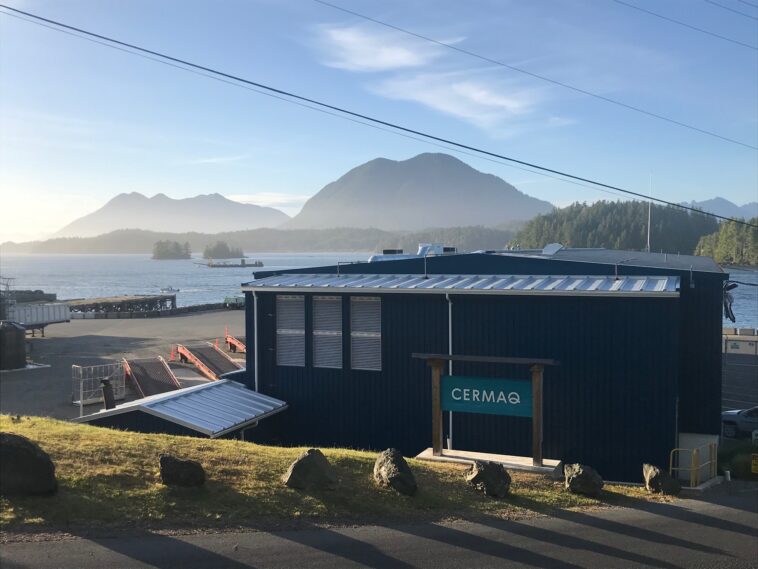
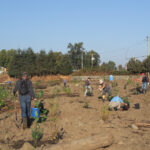
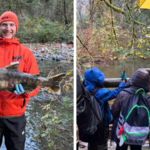
Our federal liberal goverment are not being honest with Canadians about fish farms in our oceans. By 2025 fish farming is supposed to be over, yet they are secretly supporting new ones and increase size of exsisting farms. Minister Murry was pushed out of the fishery ministry and replaced buy a new one that supports the liberal government agenda. Lie to Canadians, the ones that are concerned and care about our wild fish in our oceans. We must fight back and don’t vote the federal liberals ever again. Regards Royce Seidlitz
fish farms have done billions of dollars damage to the wild salmon and now there goneing to do billions more get them out of the ocean if they want to farm salmon do it on land